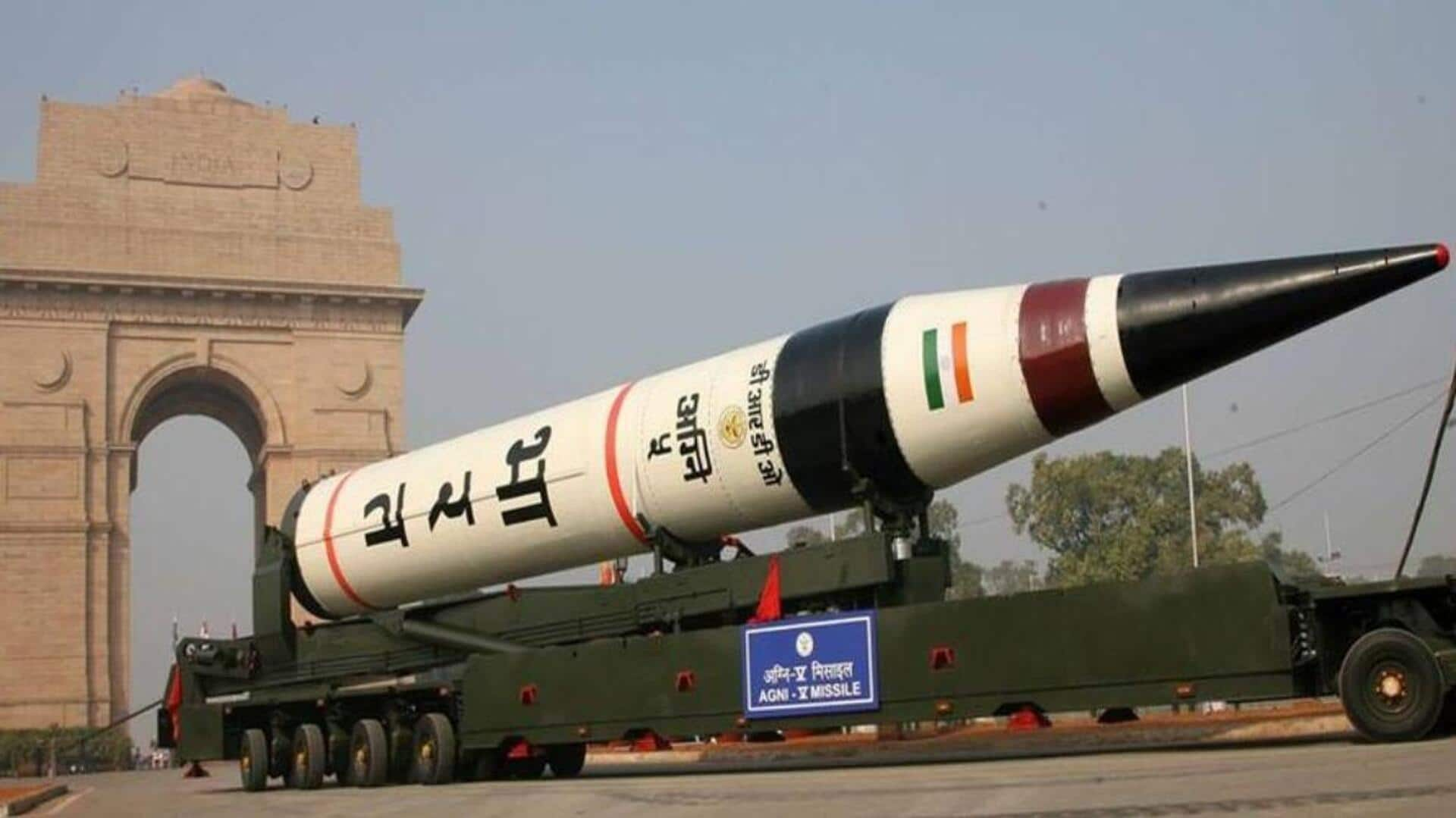
Modi announces successful testing of Agni-5 missile with MIRV technology
What's the story
India's Defence Research and Development Organisation (DRDO) is celebrating the successful first flight test of the Agni-5 missile. It is an indigenously developed weapon featuring Multiple Independently Targetable Re-entry Vehicle (MIRV) technology. Prime Minister Narendra Modi praised the scientists involved, saying, "Proud of our DRDO scientists for Mission Divyastra, the first flight test of indigenously developed Agni-5 missile with MIRV technology." This achievement aims to strengthen India's nuclear deterrence, and represents a significant upgrade to the nation's strategic defense capabilities.
Twitter Post
Take a look at the PM's announcement
Proud of our DRDO scientists for Mission Divyastra, the first flight test of indigenously developed Agni-5 missile with Multiple Independently Targetable Re-entry Vehicle (MIRV) technology.
— Narendra Modi (@narendramodi) March 11, 2024
Specs
Agni-5 missile's range and capabilities
The Agni-5 is an intercontinental ballistic missile (ICBM) with a range of 5,500-5,800km, putting nearly all of Asia, including northern China, and parts of Europe within striking distance. Its MIRV technology allows the warhead to separate into multiple re-entry vehicles for precise, targeted attacks, enabling one missile to deliver several warheads. This missile boasts the longest range in India's weapons program history and is the first to be launched at its maximum operational range of over 5,000km.
Achievement
India joins an exclusive league
With this successful test, India joins the exclusive club of nations possessing MIRV capabilities. The advanced system features homegrown avionics systems and high-precision sensor packages, ensuring that the re-entry vehicles accurately hit their targets. This accomplishment highlights India's growing technological expertise and marks a significant milestone in the country's strategic capabilities. India is working to strengthen its nuclear triad—a capacity to launch nuclear missiles from land, air, and sea—to further enhance its defense potential against potential threats from eastern frontiers.
Prowess
A look at Agni-5's predecessor
Prior to the Agni-5, the longest-range missile in India's arsenal was the Agni-3. It has a capability of reaching up to 3,500km. However, this is not enough to cover the extreme eastern and northeastern areas of potential adversaries. Now, India has joined the US, France, the UK, China, and Russia in having missiles with MIRV capabilities.